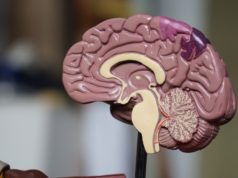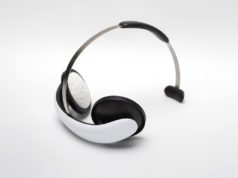 Magnus Medical has shared promising results from a clinical trial published in the Proceedings of the National Academy of Sciences indicating that treatment with SAINT neuromodulation reverses abnormal brain signalling by changing the direction of brain signal flow in people with severe depression. Findings also reveal a new biomarker that may be helpful in the diagnosis and treatment of major depressive disorder (MDD), a company press release notes.
Magnus Medical has shared promising results from a clinical trial published in the Proceedings of the National Academy of Sciences indicating that treatment with SAINT neuromodulation reverses abnormal brain signalling by changing the direction of brain signal flow in people with severe depression. Findings also reveal a new biomarker that may be helpful in the diagnosis and treatment of major depressive disorder (MDD), a company press release notes.
In the trial, researchers conducted what Magnus calls the first investigation of the relationship between resting-state functional magnetic resonance imaging (MRI) brain activity, major depression, and treatment response to the US Food and Drug Administration (FDA)-cleared SAINT neuromodulation therapy.
Findings show that treatment with SAINT for major depression produces changes in brain signalling by reversing the direction of abnormal brain signals in the bilateral anterior cingulate cortex (ACC)—the region that manages fundamental emotions, which predicts improvement in depression symptoms. Magnus further claims that, notably, pretreatment ACC signalling predicts depression severity and the likelihood of a person’s treatment response to SAINT therapy, and as such may also serve as a biomarker for diagnosing and treating MDD.
Data from 33 patients diagnosed with treatment-resistant major depression, 23 of whom received treatment with SAINT and 10 who received a sham treatment, were compared to 101 healthy individuals. The functional MRI data revealed that the anterior insula in healthy people—the region of the brain that supports subjective feelings and sensation—sent signals to the ACC, whereas in 80% of the people with depression, the flow of activity was reversed and the ACC sent signals to the anterior insula.
The results also indicate that the higher quantity of abnormal signalling in the ACC is related to the severity of major depression, according to a Magnus press release. The study’s senior authors are Marcus Raichle (Washington University, St Louis, USA) and Nolan Williams (Stanford Medicine, Stanford, USA).
The release goes on to state that SAINT neuromodulation system uses structural and functional MRI to inform a proprietary algorithm that identifies the optimal anatomic target for focused neurostimulation in people with MDD. This new approach is delivered on an accelerated, five-day timeline with targeting of the stimulation precisely tailored to each person’s brain connectivity.
“These findings have the potential to be a gamechanger,” said Brandon Bentzley, co-founder and chief scientific officer of Magnus. “This strongly supports the role of functional MRI resting-state connectivity in our SAINT neuromodulation system as a method of personalised targeting to treat underlying causes of depression and suggests that this could be a fundamental biological signature of MDD. Identifying other neural pathways could lead to the discovery of additional biomarkers that characterise other highly debilitating neuropsychiatric disorders.”













